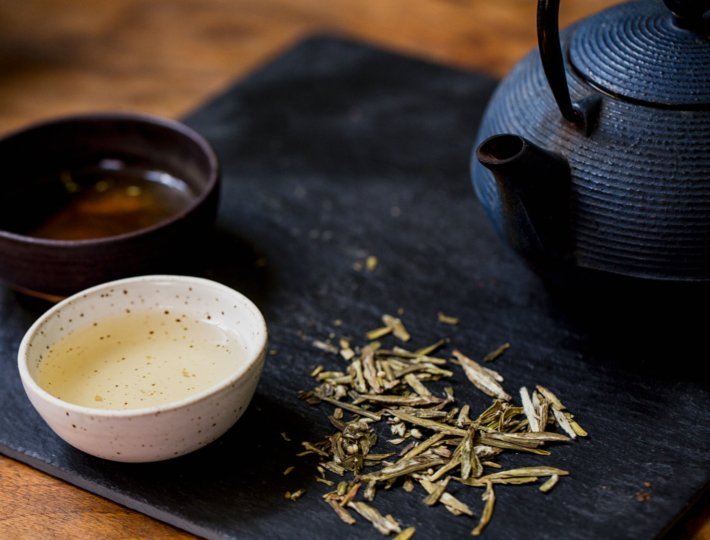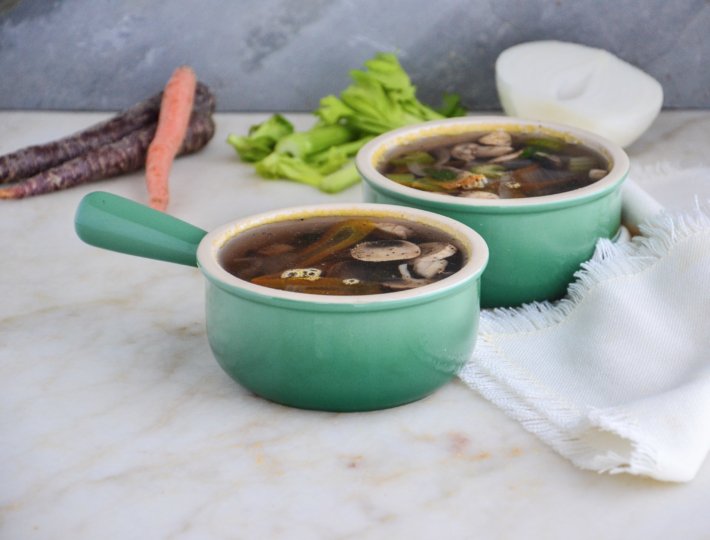With autoimmune diseases on the rise and the connection between inflammation and leading causes of death becoming clear in recent years, more attention has been focused on inflammation in the body and how it can be controlled. While the occurrence of chronic inflammation and related diseases are somewhat mysterious and can be quite serious, the good news is that some of the most powerful tools for managing it are completely in your control.
What Is Inflammation?
Some level of inflammation in the body is essential as it is a key component of the immune system’s response against invaders, explains David Katz, M.D., M.P.H., author of Disease-Proof: The Remarkable Truth About What Makes Us Well. “The immune system sends white blood cells and other chemical messengers to protect the body against threats such as pathogens. Inflammation refers to the friendly fire or collateral damage that occurs during this process.”
The difference between inflammation that protects your body and what Dr. Katz dubs “dysfunctional inflammation,” the disease-causing kind, is that the white blood cells and other compounds don’t retreat once the threat has passed. Your immune system remains in overdrive and erodes the lining of blood cells, damages healthy tissues, and sets the stage for chronic medical conditions.
“If we turn off the inflammatory response, we’d have no immune system to protect us against viruses, bacteria, pathogens, parasites, and cancer,” Dr. Katz says. “We wouldn’t live very long. We need inflammation to survive.” But if our immune system doesn’t function properly, inflammation can kill us. Research shows that inflammation is connected to some of the leading causes of death in the U.S., including heart disease, stroke, and cancer, as well as obesity, diabetes, and dementia. Today, up to 50 million Americans are affected by autoimmune diseases such as rheumatoid arthritis, lupus, multiple sclerosis, and irritable bowel syndrome, to name a few.
What Causes Inflammation?
Plenty of factors in the environment and daily life can lead to excessive inflammation. Cigarettes, pollution, lack of physical activity, obesity, inadequate sleep, stress, and even loneliness can push your immune system into overdrive. Diet, however, rises to the top as one of the factors most likely to cause out-of-whack inflammation as well as a path toward healing it.
“Diet is the construction material for white blood cells, chemical messengers, and hormones that run the show,” Dr. Katz says. “Certain elements in food can be used to build inflammatory compounds, and certain elements can build anti-inflammatory compounds. If you have an imbalance in your diet, you’ll have an imbalance in the products of your diet.”
What Can You Eat to Fight Inflammation?
Just as inflammation isn’t inherently good or bad, Dr. Katz emphasizes that when it comes to your diet, it’s not about focusing on good or bad foods. “People have a tendency to approach diet with religious fervor,” he says. “But it’s all about context. It’s about balance.” For example, we know that foods rich in omega-3 fatty acids are anti-inflammatory. Harvard researchers found that the body converts omega-3 fatty acids into compounds that trigger an “off” switch on an overactive inflammatory process. But that doesn’t mean you should gorge on them. “The Inuit culture, who live on marine foods and have a huge intake of omega-3s, mostly die young because of intracranial bleeding,” Dr. Katz says. “In addition to being anti-inflammatory, extremely high levels of omega-3’s inhibit platelets, so they prevent clotting.”
For the typical American, however, consuming more omega-3s makes sense because we live in a world where inflammation-promoting omega-6 fatty acids—found in fried and processed foods—are rampant. So minimizing those foods and reaching for more omega-3-rich choices like sardines, salmon, flaxseeds, walnuts, and soybeans serves us well.
Approaching an inflammation-fighting diet from the vantage point of seeking balance, rather than good or bad foods, gives you a greater chance at fostering a healthy immune system. “Nothing needs to be eliminated,” Dr. Katz says. “My personal advice and approach is to eat wholesome foods. If you eat a diet mostly made up of nutritious foods such as fruits, vegetables, whole grains, beans, lentils, vegetable oils, fish, meat, and eggs, you end up getting the nutrients you need to keep inflammation in check.” You also leave little room for inflammatory items like saturated fats and refined starch. But, if you have them occasionally, your body is already primed to brush away inflammation-causing compounds thanks to the nutrients that make up the majority of your diet.
Fact is, there’s no miracle food for fighting inflammation, Dr. Katz says. When eating an overall wholesome diet, you’ll naturally get omega-3s from nuts, seeds, healthy oils, fish, and seafood. You’ll also consume fiber from fruits, vegetables, whole grains, beans, and lentils. “Fiber prevents a blood sugar surge, which is what happens when you eat refined starch and processed foods,” Dr. Katz says. “When your blood sugar spikes, your body releases high levels of insulin into your bloodstream, and insulin is a pro-inflammatory hormone.” Meanwhile, monounsaturated fats in nuts, seeds, avocados, and vegetable oils are also part of a well-rounded diet and have an insulin-stabilizing effect, too, he adds. Fruits, vegetables, and whole grains are also key sources of antioxidants, plant compounds that sop up free radicals before they have a chance to damage the linings of blood vessels and tissues. So, without focusing on any one food or any one nutrient, approaching your diet from a balanced, holistic standpoint ensures you’re getting the inflammation-fighting goodness your body needs.
The “wholesome” diet Dr. Katz refers to reflects many of the foods found in a Mediterranean-style Diet. Research shows that eating in this way may reduce markers of inflammation and slash your risk of disease. A study published in the journal Blood found an association between following a Mediterranean Diet and lower levels of platelets and white blood cells. Other research has attributed the Mediterranean Diet to a decreased risk of Alzheimer’s disease, diabetes, stroke, heart attack, coronary artery disease, and more.
“In the end, controlling inflammation through diet can be quite simple,” Dr. Katz says. “Consuming wholesome foods in sensible combinations along with exercise, getting enough sleep, and spending time with people, is the formula for living a longer life. People who live this way aren’t just healthier, they’re happier. In the end, balance is what will get you there.”











Comments (0)